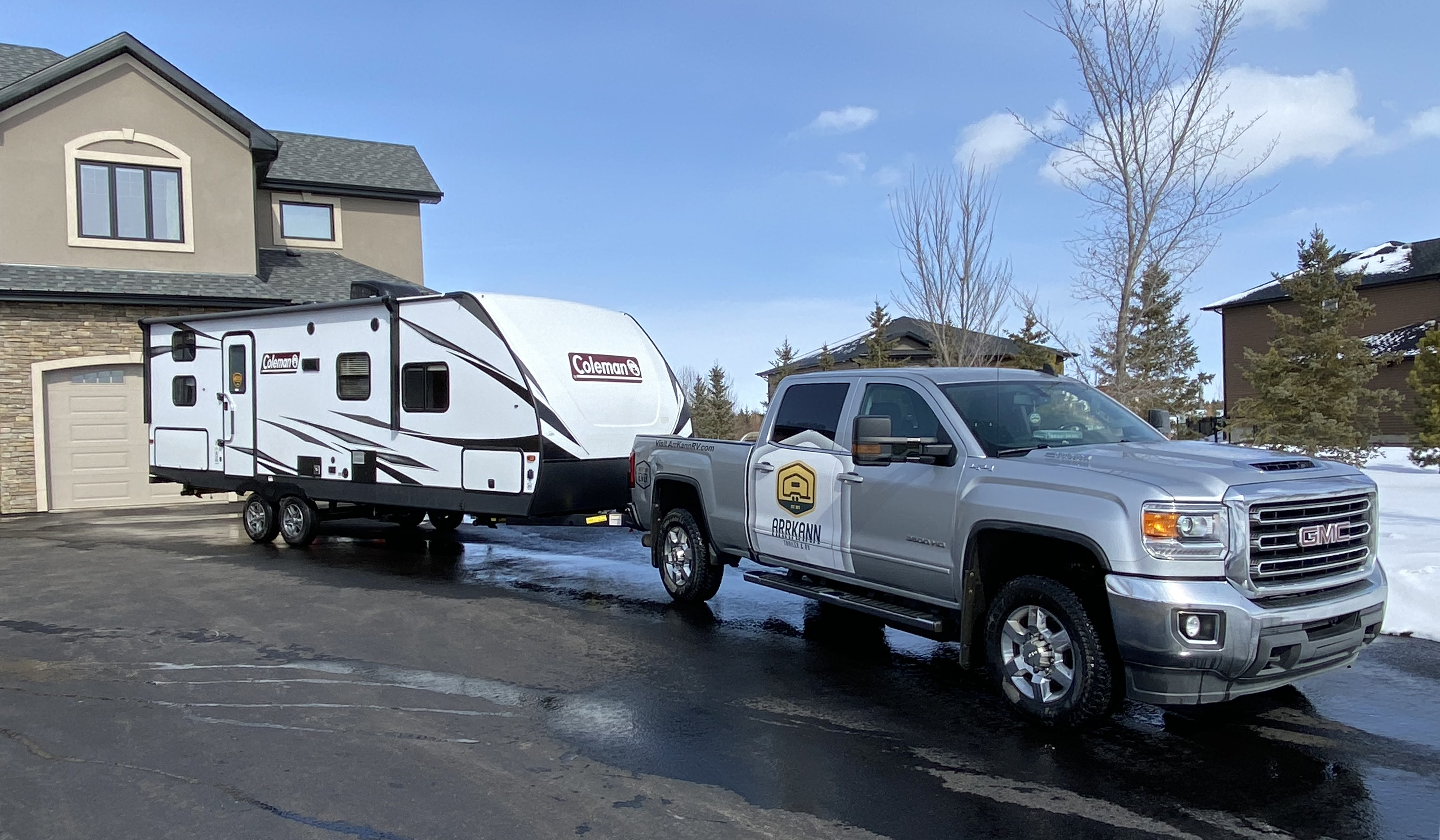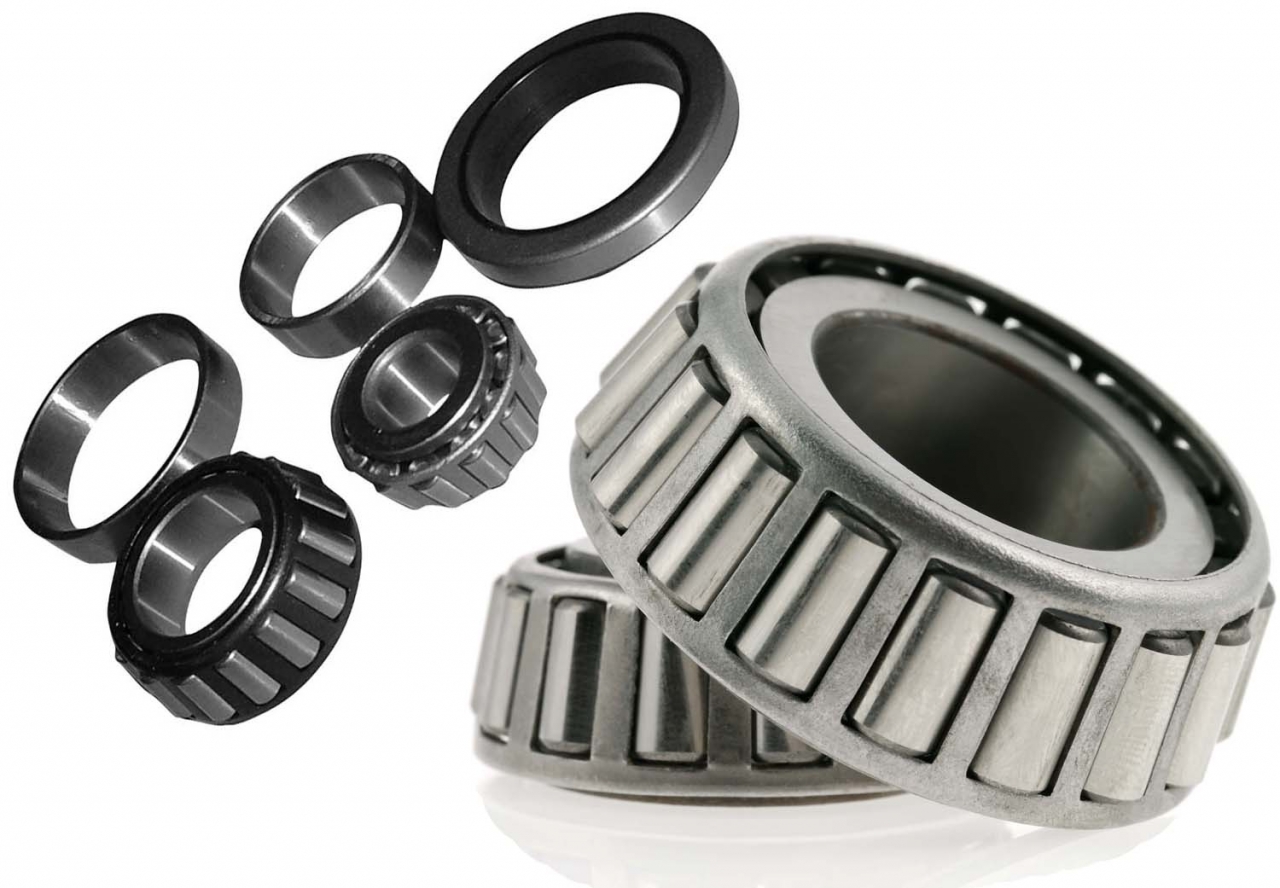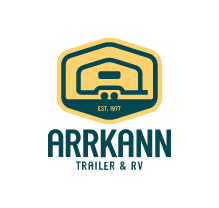Towing Tips from ArrKann RV!
Published on May 24, 2024
Tips and Tricks for Safely Towing Your RV
RVing is an extremely rewarding and fun way to spend your vacation time (although we might be a little biased)! That said the most common barrier for many people is a fear of towing. Although it might seem intimidating, anyone can do it with some education, practice and patience. Here are some tips and tricks to help ensure a smooth towing experience.

1. Know Your Tow Vehicle's Limits: Understand your
vehicle's towing capacity, including its payload and towing weight limits.
Exceeding these limits can lead to dangerous situations and damage to your
vehicle. Checkout this website!
2. Distribute Weight Properly: Ensure that the
weight inside your RV is evenly distributed and within safe limits. Avoid
overloading the rear of the RV, which can cause handling issues and sway.
3. Hitch Set-up: Ensure that the trailer
and tow vehicle are level. Make sure that the ball is securely fastened inside
the coupler and that your safety chains are attached and crossed under the
hitch.
4.
Use Proper Safety Equipment: Install safety equipment such as sway bars, weight distribution hitches, and trailer brakes to enhance stability and control while
towing. If sway happens, activate the manual lever on the brake control, DO NOT
use your vehicle brakes. Arrkann RV Towing Collection
5. Check Tire Pressure and
Condition: Inspect the tires on both your RV and tow vehicle regularly,
ensuring they are properly inflated and in good condition. Underinflated or
worn tires can lead to blowouts, especially when towing heavy loads.
6. Adjust Your Driving: Adjust your driving habits to accommodate the increased weight and size of your rig. Allow for longer stopping distances, avoid sudden maneuvers, and maintain a safe speed.
7. Plan Your Route: Choose routes that are suitable for towing an RV, avoiding narrow roads, steep inclines, and low-clearance obstacles. Use GPS or navigation apps that cater to RVs and trailers to find appropriate routes.
8. Practice Maneuvering: Practice maneuvering
your RV in a safe, open area before hitting the road. This includes backing up,
turning, and parking with the trailer attached. Larger units will track inside
your tow vehicle so you’ll need to take wider turns; practice in low-stress
situations will make the tight campground roads much easier to handle!
9.
Backing Up: Whenever you can, use a spotter; discuss how you will
communicate proper directions ahead of time to reduce frustration while trying
to back into that perfect campsite. Place your hands at the 5 o’clock and 7
o’clock positions at the bottom of the steering wheel. When you want the back
of the trailer to move to your left, move your left hand up. To move to the
right, move your right hand up.
Back-up cameras can make the job easier.
Arrkann RV Camera Collection
10. Be Aware of Height and Clearance: Pay attention to the height and clearance of your RV, especially when passing under bridges, through tunnels, or entering parking garages. Know the height of your rig and watch for clearance signs.
.jpg)
11. Perform Regular Maintenance: Keep your RV and tow vehicle well-maintained, including routine inspections of brakes, suspension, lights, and towing equipment. Address any issues promptly to ensure safe towing. Your RV needs to be charged for your breakaway switch to operate properly. Your bearings should be repacked annually, every 5000 km or if your unit has been parked for an extended period of time; this regular maintenance will prevent bearing failure and brake failure.

12. Monitor Trailer Temperature: Keep an eye on the
temperature of your RV's brakes and tires, especially during long drives or in
hot weather. Overheating can lead to brake fade and tire blowouts. This is as
simple as using the palm of your hand to feel all the tires during a break. If
one is noticeably warmer than the rest, you may have a problem.
13. Take Breaks and Rest: Driving with an RV
can be tiring, so take regular breaks to rest, stretch, and refuel. Fatigue can
impair your judgment and reaction time, increasing the risk of accidents.
By following these tips and exercising caution while towing your
RV, you can enjoy safe and enjoyable travels on the road. Feel free to visit
any of our locations and we’ll happily check your hitch setup for you!
